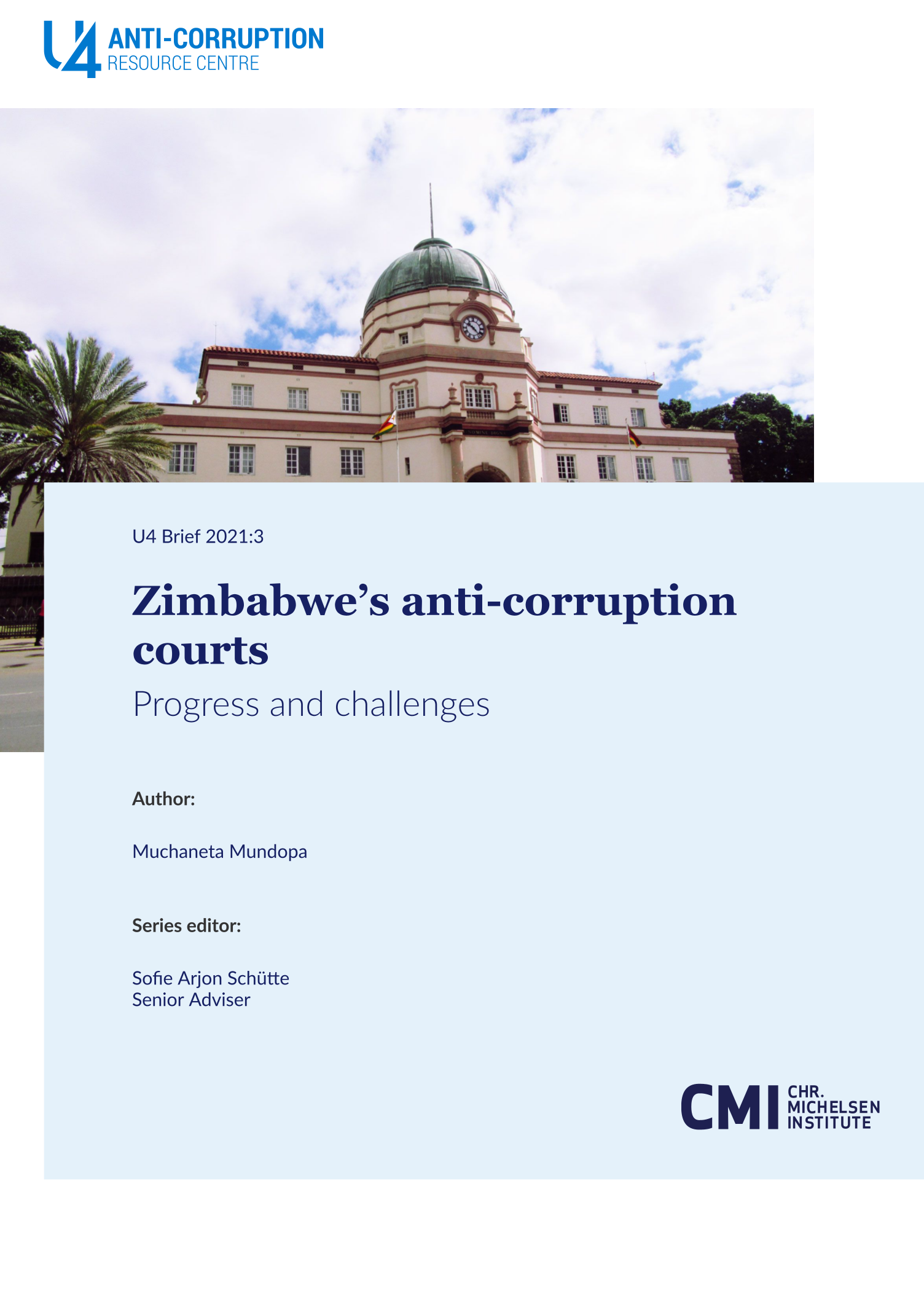Main points
- Specialised anti-corruption courts were created as a division of the High Court in Harare and Bulawayo in 2018 to speed up the hearing of corruption cases. As of December 2020, anti-corruption courts have been established in all ten of the country’s provinces, mostly at magistrate level.
- There are no special procedures for the anti-corruption courts or for the appointment of their judicial officers. When not presiding over corruption cases, these officers hear other matters of a civil or criminal nature.
- During 2020 the anti-corruption courts at High Court and Magistrates Court levels had clearance rates of 79% and 89% respectively, despite delays due to constitutional complaints filed by defendants.
- Early challenges concern perceptions of political interference, delays in concluding cases involving prominent persons, and the quality of investigations and prosecution of corruption cases.
- There is a need to build the capacity and expertise of investigators, prosecutors, and judicial officers; strengthen coordination between state anti-corruption agencies; and adopt whistle-blower and witness protection legislation and frameworks.
